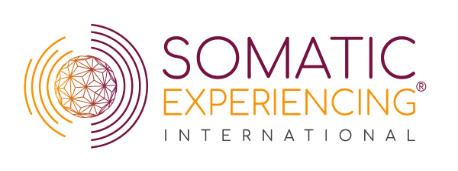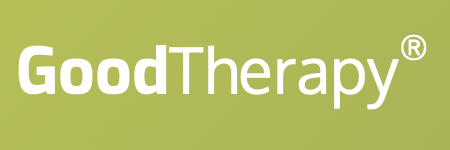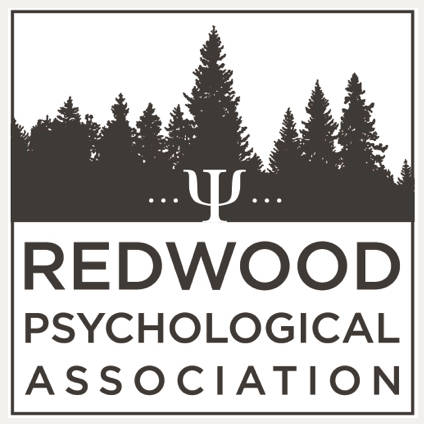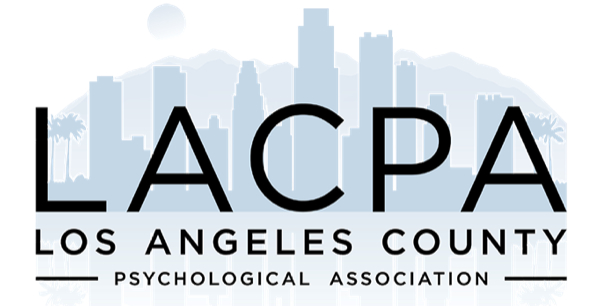A Live Webinar Wednesday, March 10th, 2021, 2:00pm - 3:00pm Pacific Time, Presenter: Ofer Zur, Ph.D
Presented by The Therapist Toolbox
Ethics 2021: Changing Times-Changing Landscape
A Live Interactive Webinar Friday, March 19th, 2021, 12:00-2:00pm Pacific Time, 2 CE Credits, Presenters: Ofer Zur, PhD & Glenn Marks, PhD.
In this 2-CE hour Live, interactive webinar, Ofer Zur, PhD, founder of Zur Institute, will review current standards of care that all professions need to maintain and will then dive into a discussion of considerations arising out of the COVID-19 pandemic. He will be joined by Glenn Marks, PhD, current director of Zur Institute who will facilitate the presentation and add perspectives from his more than 20 years of clinical experience. This webinar will include clinical examples to highlight potential ethical conflicts, along with discussions of best practices and how to resolve conflicts. Time will be allocated to addressing never before considered concerns arising out of the pandemic and the new era of telemental health. Ample opportunity for participant input and questions is included.
5/7/21, Friday, 10:30am - 12:30pm, PST Online/Zoom Seminar.
23 ways to protect your MFT, Psychotherapy or counseling practice from licensing boards complaints and malpractice lawsuits
In this 2-hour live webinar, Ofer Zur, Ph.D., the founder of Zur Institute, will review current standards of care that all MFT's, psychotherapists and counselors need to maintain, will outline the 23 ways that MFT's and other licensed psychotherapists need to pay attention to in order to keep their license and will then outline some of the ethical considerations arising out of the current COVID-19 pandemic.
This course meets the qualifications for 2 CE credit for LMFTs, LCSWs, LPCCs, and/or LEPs as required by the California Board of Behavioral Sciences (BBS).
Offered by: Redwood Empire Chapter of California Association of Marriage and Family Therapists, RE-CAMFT
5/18/21, 11am – 12am, PST Online/Zoom Seminar
Forensic psychologists role in mental health licensing boards' hearings and psychotherapy malpractice lawsuits: Truth and myths regarding the standard of care of psychotherapy
The following 12 Myths and Faulty Beliefs in Psychotherapy will be explored:
- Physical Touch in psychotherapy is unethical and . . . leads to sex.
- A ‘power differential’ is always inherent in a therapist-client relationship.
- “Once a client, always a client” - Therapists have overwhelming power over their clients in perpetuity
- Dual relationships in counseling are always unethical, constitute ill-advised boundary violations.
- Self-disclosure, socializing with or bumping into clients in the community always interfere with transference analysis and clinical efficacy.
- “Don’t blame the victim” - Victims are always 100% innocent.
- Therapists-Clients bartering arrangements are inherently exploitative and should be avoided at all cost.
- Gift giving by therapists to clients is unacceptable.
- As the slippery-slope argument predicts, boundary crossings inevitably lead to boundary violations.
- Malpractice Lawsuits against psychotherapists and counselors are common.
- It is all about CONTEXT: It is never ever ethical for a psychotherapist to be naked with a client. (Read)
- The DSM is a scientifically valid, and reliable document.
For the video recording of the live presentation, click here, then enter the code: z2C$+?Yv
Handout: Critical Look at 12 Myths & Faulty Beliefs in Psychotherapy
Presented by Law and Mental Health series. Department of Psychiatry and Behavioral Sciences at the University of New Mexico
1 CE available for psychologists
June 1st (3 hrs) 12pm-3pm & June 2nd (3hrs) 12pm-3pm, 2021
Standard of Care in Mental Health Services: Ethical, Clinical and Boundary Considerations
Online training is sponsored by Los Angeles Department of Mental Health (LADMH). Los Angeles, CA.
(Total 6 hours) Handout
Online 2 CE Course Based on 6/18/21, 2 hr, Online/WebEx Webinar.
23 Ways to Protect Your License From Licensing Board Investigations and Civil Lawsuits
In this 2-hour live webinar, Ofer Zur, Ph.D., the founder of Zur Institute, will review current standards of care that all psychotherapists, counselors MFT’s and social workers need to maintain. He will outline the 23 ways in which licensed psychotherapists need to pay close attention, in order to keep their licenses secured. The course will also attend to the complex issues related to therapists engaging with clients via texting and social media, and will then briefly outline and address some of the ethical considerations arising from the current COVID-19 pandemic and the new era of tele-mental health.
Offered by: GoodTherapy.org
6/29/21, Tuesday, 1pm-3pm EST, 2-hour live webinar
23 Ways to Protect Your License From Licensing Board Investigations and Ways to Attend to the Current Coronavirus Ethics Challenges
In this 2-hour live webinar, Ofer Zur, Ph.D., the founder of Zur Institute, will review current standards of care that all psychotherapists, counselors MFT’s and social workers need to maintain. He will outline the 23 ways in which licensed psychotherapists need to pay close attention, in order to keep their licenses secured. The course will also attend to the complex issues related to therapists engaging with clients via texting and social media, and will then briefly outline and address some of the ethical considerations arising from the current COVID-19 pandemic and the new era of tele-mental health.
7/16/21, Friday, 10am-1pm PST, 3 CE, Online/Webinar.
23 Ways to Protect Your License From Licensing Board Investigations and Ways to Attend to the Current Coronavirus and TeleMental Health Ethical Challenges
In this 3-hour live webinar, Ofer Zur, Ph.D., the founder of Zur Institute, will review current standards of care that all psychotherapists, counselors MFT’s and social workers need to maintain. He will outline the 23 ways in which licensed psychotherapists need to pay close attention, in order to keep their licenses secured. The course will also attend to the complex issues related to therapists engaging with clients via texting and social media, and will then briefly outline and address some of the ethical considerations arising from the current COVID-19 pandemic and the new era of tele-mental health.
Online 1 CE credit course
Truth and myths regarding the standard of care of psychotherapy
In this 1 CE (1 hr.) online course Ofer Zur, Ph.D., the founder of Zur Institute, will review the most common myths or faulty beliefs regarding the standard of care of psychotherapy. These myths include: Therapists' indefinite power over their clients; Touch in therapy often leads to sex; All dual relationships, bartering, and gifts are unethical; Therapist power & influence over their clients in perpetuity (i.e., "Once a client always a client"); All victims are always 100% innocent; Boundary crossings inevitably lead to boundary violations.
The online course is based on the 8/13/21, 1 hr (1 CE Credit), Online/WebEx Webinar.
Myths & Faulty Beliefs about the Standard of Care in Psychotherapy & Counseling
Some of the myths and faulty beliefs about the standard of care and ethics of psychotherapy and counseling that will be explored are:
- Once a client, always a client: Therapists' overwhelming power over clients in perpetuity
- All dual relationships are unethical and lead to exploitation
- Boundary crossings. inevitably, lead to boundary violations
- Non sexual touch is the first step towards sexual touch
- Don’t (never) blame the victim - All victims are always 100% innocent
- The DSM is a scientifically valid, and reliable document.
- Telemental Health or Distance Therapy is a Recent Development
8/15/21, Sunday, 1pm - 3pm, PST Online/Zoom 2 CE Seminar.
23 ways to protect your MFT, Psychotherapy or counseling practice from licensing boards complaints and malpractice lawsuits
In this 2-hour (2 CE) live webinar, Ofer Zur, Ph.D. will review current standards of care that psychologists, psychotherapists and counselors need to maintain, will outline the 23 ways that psychotherapists need to pay attention to in order to keep their license and will then outline some of the ethical considerations arising out of the COVID-19 pandemic.
9/25/21, 10am – Noon , PST, 2 CE Credits, Online/Zoom Seminar
Truth, myths and faulty beliefs regarding the standard of care of psychotherapy
Some of the myths and faulty beliefs about the standard of care and ethics of psychotherapy and counseling that will be explored are:
- Once a client, always a client: Psychotherapists' overwhelming power over their clients in perpetuity
- Non sexual touch in psychotherapy is the first step towards sexual touch
- All dual relationships between counselors and clients are unethical and lead to exploitation of clients
- Boundary crossings. inevitably, lead to boundary violations
- Don’t (never) blame the victim - All victims are always 100% innocent
- The DSM is a scientifically valid, and reliable document.
- Telemental Health or Distance Therapy is a Recent Development
- It is important to follow risk management principles in order to operate within the standard of care
In the live 2 CE credits webinar, participants will be able to raise questions throughout and at the conclusion of the course.
10/2/21, Saturday, 10am-Noon, PST, 2 CE, Online/Zoom Webinar.
23 Ways to Protect Your License From Licensing Board Investigations and Civil Lawsuits
In this 2-hour live webinar, Ofer Zur, Ph.D., the founder of Zur Institute, will review current standards of care that all psychotherapists, counselors MFT’s and social workers need to maintain. He will outline the 23 ways in which licensed psychotherapists need to pay close attention, in order to keep their licenses secured. Dr. Zur will also briefly attend to the some of the complex issues related to therapists engaging with clients via texting and social media, the ethical concerns around patient diversity in therapy, and some of the main ethical considerations arising from the COVID-19 pandemic and the new era of telemental health.
10/12/21, Tuesday, 10am-Noon, PST, 2 hr, Online/Webinar.
Myths & Faulty Beliefs about the Standard of Care in Psychotherapy
Some of the myths and faulty beliefs about the standard of care and ethics of psychotherapy that will be explored are:
- Touch in therapy is unethical. Non sexual touch is the first step towards sexual touch
- Once a client, always a client: Therapists' overwhelming power over clients in perpetuity
- All dual relationships are unethical and lead to exploitation
- The 'Slippery Slope' (paranoid) myth: Boundary crossings, inevitably, lead to boundary violations
- Don’t (never) blame the victim - All victims are always 100% innocent
- The DSM is a scientifically valid, and reliable document.
- Telemental Health or Distance Therapy is a Recent Development
There will be a time for audience participation and questions for the presenter after the presentation of each myth.
10/23/21, Saturday, 11:15am-1:15pm, PST, 2 CE, Online/Zoom Webinar. Part of LACPA Annual Conference
23 Ways to Protect Your License From Licensing Board Investigations and Civil Lawsuits
In this 2-hour live webinar, Ofer Zur, Ph.D., the founder of Zur Institute, will review current standards of care that all psychotherapists, counselors MFT’s and social workers need to maintain. He will outline the 23 ways in which licensed psychotherapists need to pay close attention, in order to keep their licenses secured. Dr. Zur will also briefly attend to the some of the complex issues related to therapists engaging with clients via texting and social media, the ethical concerns around patient diversity in therapy, and some of the main ethical considerations arising from the COVID-19 pandemic and the new era of telemental health.
11/19/21, 9:30am - 4PM, PST (6 CE hrs) Online/Zoom Interactive Seminar.
Standard of Care In Mental Health Services: Ethical, Clinical & Boundary Considerations
This 6 hour Live CE interactive presentation will review current standards of care that all LMFTs, social workers, counselors, and licensed psychotherapists need to maintain. It will include clinical examples to highlight potential ethical conflicts, along with discussions of best practices and how to resolve conflicts. Time will be allocated to addressing never before considerations and concerns arising out of the COVID-19 pandemic and this new era of telemental health. In addition to the PowerPoint, the presentation will include small group discussions and polls as well as Q &A as time permits.
Topics to be covered are:
- Different types of consultations
- Ethical, Legal and Clinical aspects of each clinical case
- Common State Licensing Board Complaints: Inappropriate custody recommendations, Texting into the night, Drunk driving, Sex w/ current clients, etc.
- Standard of Care: Myths and facts
- Therapists Googling clients & Digital Boundaries
- Responding to a negative YELP review
- Practicing in the next phase of the COVID-19 epidemic
- Ethical issues in social networking
- Ethical issues in Telemental Health: Crossing state lines, emergencies, fitness, and more.
- Boundaries in Therapy: Gifts, Touch, Dual Relationships, Bartering, Out of Office
6 hrs - 6 CE Credit. Fulfills Law & Ethics CE requirement in CA and, potentially, other states.
11/29/21, Monday, 3pm-5pm PST, 2-hour live webinar
Digital and Traditional Boundaries and TeleMental Health Ethics
The presentation will cover the following topics:
- Defining & identifying the Standard of Care, differentiating between ethical boundary crossings, and unethical boundary violations and reviewing the ethical issues of digital and traditional boundaries and TeleMental Health.
Dealing Ethically with Issues of:
- Digital Boundaries: Social Networking with clients; Yelp exchanges; 'Texting into the night’; Therapists Googling clients; Clients Googling Therapists - Online self-disclosure; Disinhibition effect
- TeleMental Health: Cross States lines; Separate Informed Consent; Verifying clients’ identity-location-age, Emergencies: 911, Duty to warn, Danger to self or others, Child abuse reporting; Internet disruption, security & privacy; Additional Professional Liability policy; Clients, therapists, disorders and testing that are not suitable for TeleMental Health; No physical touch, gifts, etc.
- Traditional Boundaries: Boundary Crossings vs. Boundary Violations; Gifts, Touch; Dual Relationships; Self-disclosure; Bartering; Home visit; Home office; ‘Walk & Talk’ Therapy.
- There will time for polls and Q&A
Organize & Thrive presents the Virtual Summit: 
Dec. 14th (3 hrs) 12pm-3pm & Dec. 15th (3hrs) 12pm-3pm, 2021
Standard of Care in Mental Health Services: Ethical, Clinical and Boundary Considerations
Online training is sponsored by Los Angeles Department of Mental Health (LADMH). Los Angeles, CA. (Total 6 hours)
1/25/22, Tuesday, 5pm-6pm, EST, 1 APA CE, Online/Zoom Webinar.
25 Ways to Protect Your License From Licensing Board Investigations and Civil Lawsuits
In this 1-hour live webinar, Ofer Zur, Ph.D., the founder of Zur Institute, will review current standards of care that all psychotherapists, counselors MFT’s and social workers need to maintain. He will outline the 25 ways in which licensed psychotherapists need to pay close attention, in order to keep their licenses secured. Dr. Zur will briefly attend to the some of the complex issues related to therapists engaging with clients via texting (in all hours of the day and NIGHT) and social media, and some of the main ethical therapeutic considerations arising from the COVID-19 pandemic and the new era of telemental health.
The Practice Institute is approved by the American Psychological Association (APA) to sponsor continuing education for psychologists
2/14/2022, Monday, 10am-1pm PST, 3 CE Credits, 3-hour live webinar
Digital and Traditional Boundaries and TeleMental Health Ethics
The presentation will cover the following topics:
- Defining & identifying the Standard of Care, differentiating between ethical boundary crossings, and unethical boundary violations and reviewing the ethical issues of digital and traditional boundaries and TeleMental Health.
Dealing Ethically with Issues of:
- Digital Boundaries: Social Networking with clients; Yelp exchanges; 'Texting into the night’; Therapists Googling clients; Clients Googling Therapists - Online self-disclosure; Disinhibition effect
- TeleMental Health: Cross States lines; Separate Informed Consent; Verifying clients’ identity-location-age, Emergencies: 911, Duty to warn, Danger to self or others, Child abuse reporting; Internet disruption, security & privacy; Additional Professional Liability policy; Clients, therapists, disorders and testing that are not suitable for TeleMental Health; No physical touch, gifts, etc.
- Traditional Boundaries: Boundary Crossings vs. Boundary Violations; Gifts, Touch; Dual Relationships; Self-disclosure; Bartering; Home visit; Home office; ‘Walk & Talk’ Therapy.
- There will time for polls and Q&A
In the live 3 CE credits webinar, participants will be able to raise questions throughout and at the conclusion of the course.








